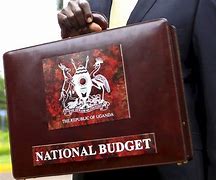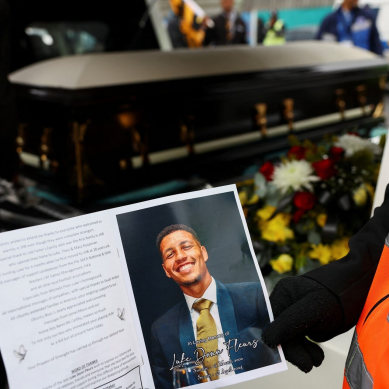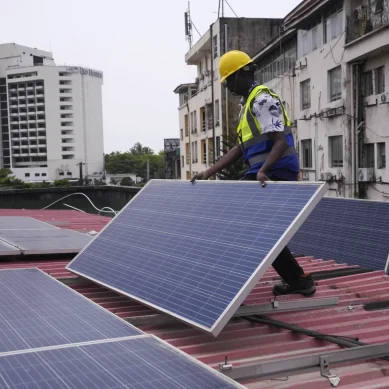
In this article I want to link exploitation, poverty generation, dominance, control and oppression in one spectrum of critical thinking with reference to Uganda.
Uganda presents a good example of a country in Africa where the people are openly exploited right from the top of leadership and governance. Many promises of development, transformation and progress are made, and strategies to this end are manufactured. However, instead what emerge are continuous exploitation, poverty generation, dominance and oppression. These are the most constant characteristics we can use to describe the country 62 years since it attained political independence from Great Britain.
In many respects Uganda seems to be moving backwards rather than forwards, although well-crafted propaganda by power has successfully convinced many that the country has achieved a middle-income economy and is integral to the 21st century.
Before setting on the task of addressing the topic of discourse, I asked one knowledgeable Ugandan for his thoughts on whether it is true that Uganda is a good example of a country where the post-independence trajectory is a one of increasing exploitation, poverty generation, dominance, control and oppression and dictatorship is worse than what was the case during the colonial times, or the immediate post-colonial period. He responded:
Many Ugandans now believe Uganda is under a dictatorship, just like Rwanda and Equatorial Guinea. But there were other African countries under dictatorship: the 25-year-old one-party dictatorship of Julius Nyerere in Tanzania and the 42-year-old dictatorship of Mammuar Gaddafi in Libya are good examples of perennial dictatorships.
However, while other dictatorships have used poverty as a political weapon to exploit, dominate and oppress whole populations, Gaddafi used his to enrich Libyans and provide them with high quality public services. His failure, however, was that he denied Libyans freedom and democracy. President Tibuhaburwa of Uganda has also denied Ugandans genuine freedom and democracy for 38 years, but has not achieved even 10 per cent of what Gaddafi achieved in Libya. True, you cannot rule a country for 38+ years and you are not characterised as a dictator, benevolent or non-benevolent. You perfect poverty as a tool of exploitation, dominance and oppression. It becomes dangerous if this is ethnicised, with a small ethnic group escaping poverty while the members of the other ethnic groups sink further and further into the sea of poverty.
Uganda is a sad story at the moment. Our criminal elites have ceded their power of control and now think President Tibuhaburwa Museveni is the “source” of everything; the beginning and end of everything. Apparently even problems now begin with him as the cause and end with the people as the victims! He is lucky because most Ugandans are still ignorant of the fact that their main problem is Yoweri Tibuhaburwa Museveni who is also the institution of Presidency of Uganda. Gone are the days when the country would wake up and say Tusaba Mukama atuyambe (We ask God to help us). Today they pray Tusaba Gavumenti etuyambe), which is the same as praying Yoweri Tibuhaburwa Museveni help us. Indeed I have heard some desperate Ugandans cry out Museveni tuyambe (Museveni help us).
Citing Peter Obi, he said ‘No country can progress if its politics is more profitable than its industries. In a country where those in government are richer than entrepreneurs, they manufacture poverty (instead of prosperity)”.
The common (ordinary) man needs to be liberated but also the captured elites need liberation. The vagabonds in power (VIPs) also need to be rescued from their greed and selfishness. Almost everyone needs liberation; even myself’. Citing former British Prime Minister, Winston Churchill, he said, ‘You can see how principles have been modified against money; nations sold for money; honour for money; families split for money; friends separated for money; people killed for money; and people being made slaves to money’. That is how I sum up Uganda under President Tibuhaburwa Museveni”.
There is no doubt that in conditions of worship of money instead of God, there is acceleration of exploitation, generation of poverty, dominance, control and oppression of the people and prosperity for all is postponed on a continuous and spiralling basis in favour of prosperity for a few. Instead, prosperity just becomes a promise of “Wealth For All. The Daily Monitor of November 13, 2013 carried a story headlined, Museveni’s unfulfilled pledges. It stated that the plages totalled 817 with an estimated cost of more than Uganda shillings 12.9 trillion in key areas such as infrastructure, schools, hospitals, airport, bridges, electricity and machinery. Promises of districts and town councils confounded the dishonoured presidential promises. The Parliament of Uganda got concerned and set up a committee to scrutinise the pledges, which, no doubt, were made for political gain. Promises not honoured are a hoodwink to attach the unsuspecting victims of purposely generated poverty to the ruler or system of exploitation, dominance, control and oppression.
Way back in 1970, Robert H. Schuller (1970) wrote in his book “Success is Never Ending Failure is Never Final” thus:
“…For the alternative to prosperity could be poverty… And poverty becomes terribly oppressive. How many people in the poverty pockets of our world have opted for dictatorships because they lacked the hope of financial independence? Desperate, hungry, poor people have been tempted to trade their freedom for bread. Poverty leaves depressed, discouraged and defeated people at the mercy of any dictator who comes along with promises of (solid or hollow) that hold out hope! We spread freedom from oppression”.
Poverty gets worse if it is dominated by what is called intellectual poverty. When intellectual poverty is allowed to proliferate throughout society from bottom to top and throughout leadership and governance from top to bottom, there is inadequate intellectual capital and power to address the complex issues generated by an impoverished environment, populace, leadership and governance of a country. Everything to do with development, transformation and progress becomes a gigantic lie. Taxes are wasted. Investment in anything does not yield benefits to the taxpayers. Those who are supposed to use the taxes to develop social services and infrastructure target them for personal aggrandisement and/or enrichment.
In January 2024 I wrote an article titled, Uganda: From poll tax to graduated tax to multiple taxes. This time round, I want to write on Taxation in Uganda as a tool for exploitation, dominance, control and oppression.
Let me state why we pay taxes. According to an article by David Gorton (2023, published Investopedia, updated on December 22, 2022: “Taxes are mandatory contributions levied on individuals or corporations by a government entity – whether local, regional or national. Tax revenues finance government activities, including public works and services such as roads and schools or programmes such as Social Security and Medicare”. The tax collected is, and is expected to be used for the betterment of the economy and all who are living in it.
Unfortunately, increasing taxes collected are recklessly used and misused in funding State House choices, politicians’ opulence, enhancing their luxurious, sumptuous, lavish, lush, affluent, rich and wealthy living and conduct in leadership and governance of a country increasingly swimming in a sea of poverty.as if poverty is a project.
Currently, ordinary people, businesses and institutions that pay taxes and have no way of avoiding being taxed are not happy because they see the rising number of spendthrifts in government (i.e. those who spend money in irresponsible and extravagant ways, away from what taxes are supposed to do) are on the rise. Also on the rise are people in government who evade paying taxes, pushing this to the poor and ordinary people of Uganda. Their common project is to enrich themselves at the expense of Uganda and Ugandans.
Members of Parliament no longer seek elective office to serve but to make money. They are some of the most highly paid law-makers in the world. They do not only get huge monthly salaries, but also huge pension. And apparently, most belong to the ruling party, which seems to be bent on enriching those who belong to it at the expense of Uganda’s development, transformation and progress in the difficult and complex 21st Century. They make laws to please President Tibuhaburwa Museveni, and obnoxious laws to ensure that the country is full of people who are malleable (i.e., easily influenced)
vis-a-vis the manifestation of the president. This could explain why in recent reviews of taxation in the country, the money used daily by the president, the money to State House, to travels by MPs and president for treatment et cetera, is not threatened by reduction.
In the proposed 2024/25 National Budget there is no evidence that the two things that matter to the poor and needy of Uganda – education and health – are taken as things that matter. This will only help people to devise new ways of evading taxes since they do not expect much from the taxes they will pay if they pay. As I write this article business people are in a restive mood over wayward multiple taxation, and parliament too is concerned. But parliament has been a beneficiary of oppressive taxation in the past. It will be interesting to see how the MPs drop their own selfishness and greed to work in the interest of the oppressed Ugandans.
One thing, however, is true. People everywhere in the world hate taxes. Businessmen and politicians, more often than not create ways to ensure that they do not pay tax. In any country, once taxes are collected, it is the government, which allocates the money to various sectors, including administration, education, health, security, agriculture, transport, works, public services, et cetera.
In Uganda, people are concerned when they see government officials abusing their positions by engaging in corrupt practices resulting in siphoning of public money into their personal accounts. They are even more concerned when they hear President Tibuhaburwa divinising corruption; spurring the corrupt on by suggesting that corruption is not wrong so long as they invest their loot in the country; giving money bonanzas to select people to develop them, while denying the majority development as if poverty for them is no problem; and giving a select number of ethnically oriented people exorbitant salaries at the expense of many Ugandans of similar or greater qualifications and experience in given areas of expertise.
This means that taxes being collected are either misused or targeted by thieves who are highly placed in government and its institutions, and who heed the presidential clarion call “Let the corrupt steal government (i.e. public money) so long as they invest it in Uganda. But it is public money they are stealing and investing in personal schemes, which more often than not do not benefit the majority of Ugandans. The corrupt invest in themselves, their families, their kith and kin and the members of their ethnic group but hardly in the communities where they come from.
Increasingly, the corrupt in high echelons of power and authority belong to a small ethnic group in power or those closely related to it. It is thus a small ethnic group benefitting from or maximising gains from the taxes more than the members of the other indigenous ethnic groups to who the majority of Ugandans belong. It is as if the majority are labouring and sweating to produce and pay taxes for a few to enjoy. Most of the beneficiaries are likely to avoid paying taxes or to be forgiven paying taxes by the powers that be, to maximise their gains from the labour of the middle class, poor and needy.
Meanwhile, homosexuals are investing heavily in the mushrooming poverty in the country by identifying and funding individuals in the communities to fund people seeking political office. They know that during the 38-year rule of President Tibuhaburwa Museveni the rise in poverty heavily contrasts with the rise of politics as the most lucrative employment in the country. The homosexuals hope that if they invest in politicians, they will have people in the leadership and governance of the country who will create a soft landing for the practitioners by supporting and making favourable laws. Many politicians who are supported by homosexuals are also likely to evade paying taxes.
Increasingly taxation in Uganda is being perceived by many Ugandans as a tool of exploitation, dominance, control and oppression. A good example of a tax that was perceived as a tool by government to exploit, dominate, control and oppress, especially the young Ugandans, is the social media tax (Halima Athumani, 2018). In July 2019, one year after the introduction of the tax, the revenue agency reported that it had experienced an annual shortfall of 83 per cent, having collected only Ush49.5 billion ($13.5 million). In the second year, the social media tax fetched a paltry $16.3 million.
- A Tell report / By Prof Oweyegha-Afunaduula, a former professor in the Department of Environmental Sciences of the Makerere University, Uganda











